How Nanotech Is Revolutionizing Modern Medicine 2025
How Nanotech Is Revolutionizing Modern Medicine 2025
🧬 The Official Breakdown (Science Says This Is Real Life)
Nanotechnology in medicine isn’t science fiction anymore — it’s here, and it’s reshaping how we diagnose, treat, and even prevent diseases.
At its core, nanotech means working with materials on the nanoscale — that’s about 1 to 100 nanometers. For context, a single sheet of paper is about 100,000 nanometers thick. So yeah, we’re talking tiny-tiny.
In medicine, this nano-level control allows scientists to:
- Deliver drugs directly to specific cells — like a missile with a GPS, minimizing side effects.
- Create nano-sensors that detect diseases before symptoms even show up.
- Develop smart bandages that release medicine based on your body’s needs.
- Build artificial cells and nanobots that can repair tissues from the inside out.
And that’s just scratching the surface.
Fields like oncology (cancer treatment), neurology, and gene therapy are already being transformed by this tech. Clinical trials are proving that nanotech-based treatments can target tumors more precisely, reduce chemo’s brutal side effects, and help patients recover faster.
This is the future of healthcare — except it’s already happening.
💥 The Human Take (Because Science Shouldn’t Feel Like a Robot Wrote It)
Alright, science gave us the fancy version. But let me talk to you like a human — because you’re not here for textbook jargon. You’re here to understand it.
So here’s the deal:
Imagine going to the doctor, and instead of getting hooked up to a bunch of wires, tubes, and needles, they give you a tiny capsule. You swallow it. Inside? A swarm of microscopic tech that knows exactly what’s wrong with you — and fixes it, from the inside.
No hospital bed. No surgery. No “wait and see.”
Just precision, speed, and hope.
That’s nanotech in medicine.
This isn’t some Marvel movie subplot. This is real-world science changing lives, one nanoparticle at a time. And what blows my mind? We’re still at the beginning. We haven’t even unlocked its full potential yet.
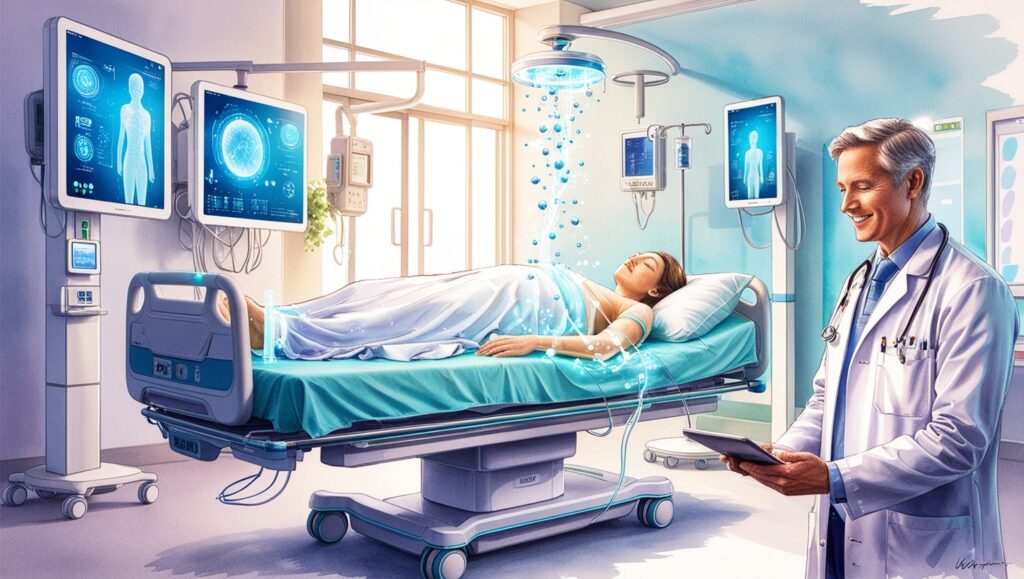
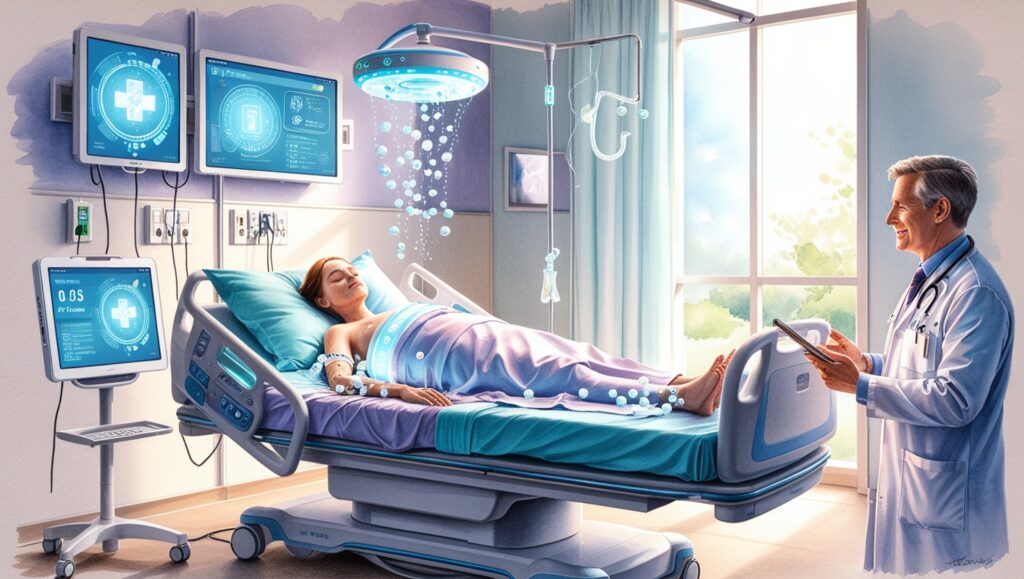
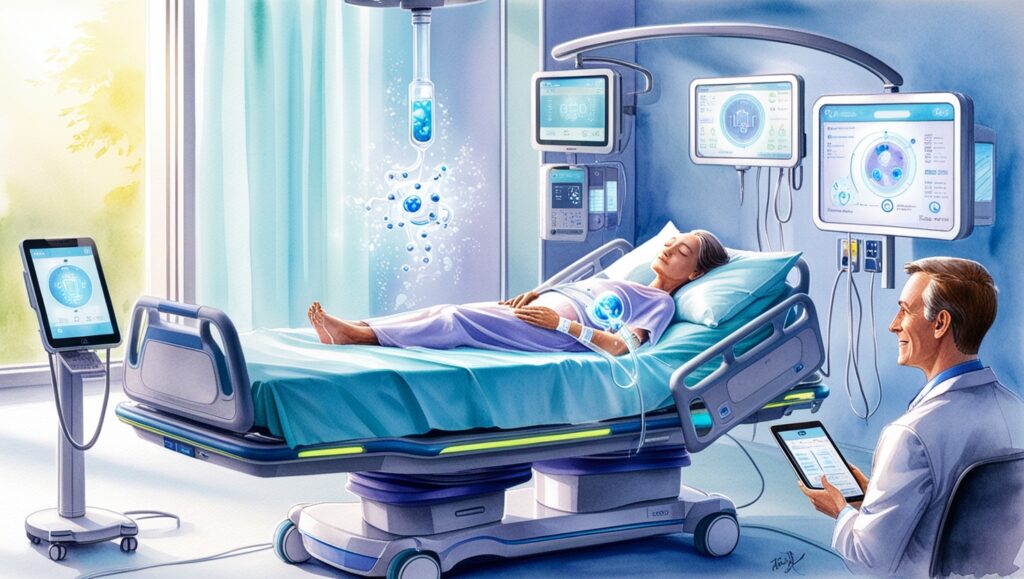

🧠 So Why Does This Matter So Much?
Because the way we’ve treated disease for decades is kind of like using a sledgehammer to fix a watch.
Think about it:
- Chemotherapy kills cancer cells — but also kills a bunch of healthy ones.
- Antibiotics work great — until your body builds resistance.
- Surgeries are lifesaving — but they’re risky, painful, and slow to recover from.
Nanotech is flipping that script.
It’s about targeting exactly what needs fixing — and leaving everything else alone. It’s like having a mechanic who doesn’t just say “your engine’s busted” but instead goes in, swaps out a micro-part, and gets you running smoothly — without breaking a sweat.
It’s careful. It’s personal. It’s next level.
👀 Real Stuff Happening Right Now
Let me throw you a few mind-blowing real examples:
- Gold nanoparticles are being used to burn tumors from the inside using light (yes, literally light-triggered therapy).
- Lipid nanoparticles helped deliver mRNA vaccines (remember COVID-19 shots? Thank nanotech).
- DNA origami (yes, folding DNA like paper) is being used to build nanorobots that carry medicine and release it only when they find a specific disease marker.
This isn’t just theory. This is happening in hospitals and labs all over the world.
😬 Okay, But Is There a Catch?
Sure. Every new technology comes with risks and questions:
- What if the body rejects nanomaterials?
- What are the long-term effects?
- Could nanotech be misused in unethical ways?
These aren’t small questions. But that’s exactly why we need people like you learning, asking, and building with purpose.
Because the tools themselves aren’t good or bad. It’s how we use them that defines their legacy.
🫀 The Soul of It All
What makes this all so powerful isn’t just the science — it’s what it means for real people.
- A kid with leukemia finally getting a treatment that doesn’t wreck their immune system.
- A parent with Alzheimer’s holding on to their memories because a nanosensor detected brain changes before symptoms showed up.
- A person in a rural village getting a diagnosis from a single drop of blood — without needing a full hospital.
That’s the real revolution: dignity.
Nanotech is bringing back the one thing medicine has always fought for — hope with precision.
External Resource:
Want to dive deeper into the science?
Check the Wikipedia page:
Nanomedicine
https://en.wikipedia.org/wiki/Nanomedicine
Related Articles from EdgyThoughts.com:
How the Human Brain Is Being Mapped in Real Time 2025
https://edgythoughts.com/how-the-human-brain-is-being-mapped-in-real-time-2025
How Biotech Is Blurring the Line Between Human and Machine 2025
https://edgythoughts.com/how-biotech-is-blurring-the-line-between-human-and-machine-2025
What if parallel worlds overlap sometimes?
https://edgythoughts.com/what-if-parallel-worlds-overlap-sometimes/
How does the immune system distinguish self from non-self?
https://edgythoughts.com/how-does-the-immune-system-distinguish-self-from-non-self/



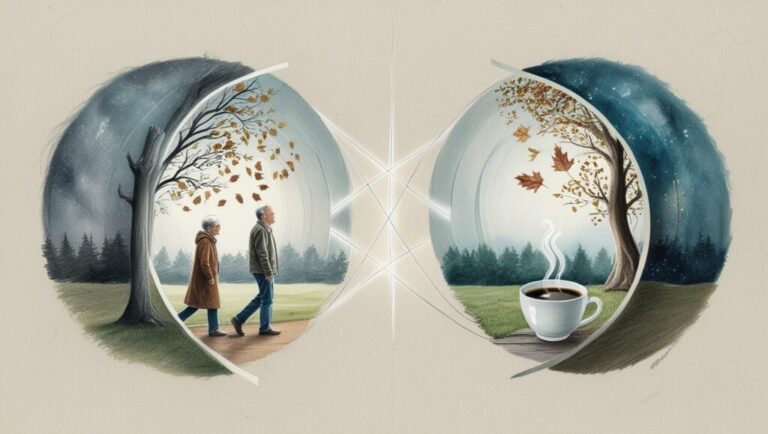
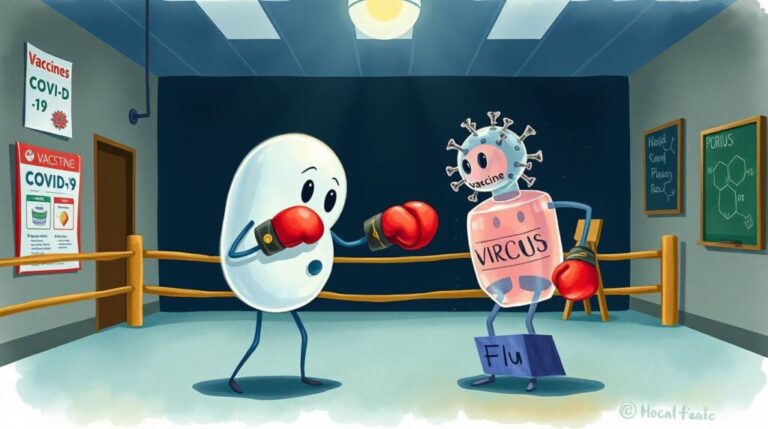

2 Comments